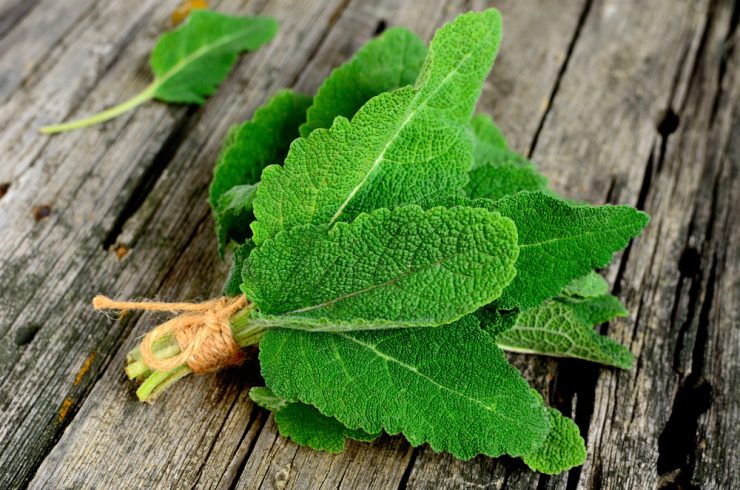Medical herbalist Gabriella Clarke introduces some of the health benefits of sage.
Native to the Mediterranean and the Balkans, sage is one of the oldest herbs long valued for its medicinal and culinary properties. There are more than 900 species, the most widely used being salvia officinalis, cultivated in Northern Europe since Medieval times. With pairs of lance-shaped, grey-green velvety leaves growing on wiry stems, sage boasts blue-mauve flowers as well as a sweet, earthy aroma. Its genus name comes from the Latin ‘salvere’ meaning ‘to be well’.
Traditionally associated with longevity, legends abound about long-lived princes who regularly downed cups of sage tea, while an old country rhyme tells us that ‘he who drinks sage in May shall live for aye’. To this day sage is thought to help slow down the ageing process and is being used in research into Alzheimer’s disease.
Here are some of the conditions that may benefit from this wonderful aromatic plant:
MENOPAUSE
Studies [i]show that sage tincture can help to reduce the incidence and severity of hot flushes both night and day. Oestrogenic flavonoids are thought to be the active ingredients.
MEMORY AND COGNITIVE FUNCTION
Extracts of sage may help to boost memory and improve cognitive function as well as being a potential treatment in cases of Alzheimer’s. One four-month study[ii] showed a significant improvement in cognitive function – sage was well tolerated and did not produce any adverse effects
DEPRESSION
Sage is sometimes indicated for use in mild to moderate depression and in cases of anxiety. It seems certain constituents from sage extract bind to the same receptors as Benzodiazepines – a group of drugs commonly used for treating anxiety disorders[iii].
BONE HEALTH
There is some evidence[iv] to suggest that sage tea can help improve bone health and help prevent conditions such as osteoporosis – at least in animals.
DIABETES
Sage may help to control type 2 diabetes. Research shows it may help reduce postprandial glucose and reduce serum cholesterol in diabetic patients.[v]
SORE THROATS
Sage leaves are traditionally chewed to alleviate sore throats. If you don’t grow sage leaves in your garden, packets are available at most supermarkets. Alternatively, look out for sage pastilles in your local health food shop.
Discover more about sage with our Herbfacts File.
[i] https://www.ncbi.nlm.nih.gov/pubmed/23670626
[ii] https://www.ncbi.nlm.nih.gov/pmc/articles/PMC5318325/
[iii]https://www.ncbi.nlm.nih.gov/pmc/articles/PMC5318325/
[iv]http://medicaljournalofcairouniversity.net/Home/images/pdf/2010/march/01.pdf
[v]https://www.ncbi.nlm.nih.gov/pmc/articles/PMC4206016/
























Add comment